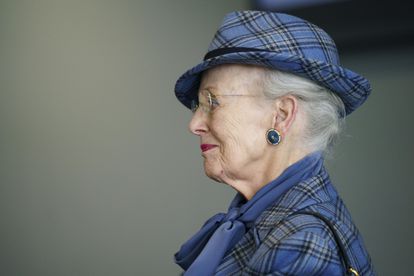Queen Margrethe of Denmark, who has simply ceded the throne to her son Frederik, translated Simone de Beauvoir’s novel, All Males Are Mortal, within the Nineteen Eighties. Not many energetic monarchs have devoted themselves to literary translation, on this case of a French author remembered above all for The Second Intercourse (1949), a e book that continues to be tremendously influential and quoted. Nevertheless, Beauvoir was far more than a pioneer of feminism.
Her novels, comparable to The Mandarins, a uncooked portrait of liberated Paris for which she received France’s most prestigious literary prize, the Prix Goncourt, in 1954, are extraordinary. However maybe most enduring are her memoirs, which have been collected in two volumes by the Pléiade editorial assortment in 2018. The affect on the European literary canon of the Gallimard classics assortment — of which the Pléiade assortment is a component — is so resounding that, when his novels appeared in it, Peruvian writer Mario Vargas Llosa mentioned that he thought it was as essential as profitable a Nobel Prize, or extra so. It has undoubtedly finished justice to Beauvoir’s literary legacy: her memoirs paint a portrait not solely of her life, however of her total period. Memoirs of a Dutiful Daughter is a masterpiece about adaptation and insurrection during which every new technology can discover itself.
The selection of the title translated by Denmark’s former Queen can be very important. All Males Are Mortal, an existentialist novel a few Tuscan prince who attains immortality, touches on dying, a central theme in her work. Beauvoir additionally wrote a e book as transient as it’s spectacular about her mom’s sickness and dying, A Very Simple Dying, a quantity that hardly exceeds 100 pages, however which is filled with insights. Though dying is a part of life, Beauvoir displays it’s nonetheless painful and brutal. It’s one thing for which we’re by no means ready, though we all know it’s going to occur. “You don’t die from being born, nor from having lived, nor from outdated age,” she writes. “You die from one thing. The information that due to her age my mom’s life should quickly come to an finish didn’t reduce the horrible shock: she had sarcoma. Most cancers, thrombosis, pneumonia: it’s as violent and unexpected as an engine stopping in the midst of the sky…” And, within the last phrases of the e book, she says: “There isn’t a such factor as a pure dying: nothing that occurs to a person is ever pure, since his presence calls the world into query. All males should die: however for each man his dying is an accident and, even when he is aware of it and consents to it, an unjustifiable violation.”

When somebody near us passes away, underneath no matter circumstances, Beauvoir’s reflections cement the sensation that there’s a grief shared by all human beings. Irrespective of how mentally ready we’re, how outdated we’re, or how sick the one who crosses over to the opposite facet is, we’ll by no means be ready. Beauvoir’s mom confessed to her when she knew the tip was close to: “Dying itself doesn’t frighten me; it’s the bounce I’m afraid of.”
One other spectacular work by De Beauvoir is The Farewell Ceremony, which offers with Jean-Paul Sartre’s dying, her life companion and one other literary large whose shadow remains to be in proof within the twenty first century. She ends with these phrases: “His dying doesn’t separate us. My dying is not going to convey us collectively once more. That’s how issues are. It’s in itself splendid that we have been capable of reside our lives in concord for thus lengthy.”
Join our weekly e-newsletter to get extra English-language information protection from EL PAÍS USA Version

/cloudfront-eu-central-1.images.arcpublishing.com/prisa/VDGKSYPWSVAI3HFNVF4OHNMR3Q.jpg)